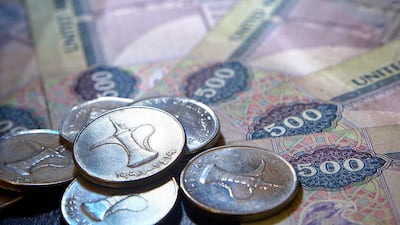Tax; such a small, unassuming word - with the power to strike fear into the hearts of everyone who hears it. But what's the reason behind the madness? Many people loathe the word because they don't understand it - or have never dared try. So we're going to do it for you.
The Tax Procedures Law issued this week laid down the foundation for the planned UAE tax system, regulating the collection of taxes and defining the role of the Federal Tax Authority.
It paves the way for the collection of taxes, mainly VAT, which will be introduced at a rate of 5 per cent on January 1 next year and excise taxes, which will be brought in, in the fourth quarter of this year. The formal tax document plus executive regulations setting out exactly what will be taxable and exempt is expected in the coming months. The UAE introducing VAT (albeit in a very small increment) is a turning point in the country's glory years of completely tax-free living.
But what exactly does it mean for you, the future taxpayer living and buying things here? Let us tell you...
What is VAT?
Value-added tax (known in some countries as goods and services tax, or GST). This is a consumption tax imposed on a product at each stage of production, before the final sale. Take, for instance a computer manufacturer: the company is taxed on all the supplies it purchased to make and produce the computer before it reaches the shelf. Then you, the customer pays the VAT (the tax the company had been liable for during the production process) as a percentage of the total price. VAT is not usually an extra or add-on to the sale price. In the UAE, the tax will be calculated as a percentage of the retail sale price of a product.
What is excise tax?
While commonly referred to as a tax, excise is for all intents and purposes, a levy. It's imposed on the manufacturer, not the customer, during the creation of a product. It often comes in the form of customs duties (if goods needed to produce the product cross a border). But as with VAT, the manufacturer again passes the buck on to the consumer by including it in the product's price. Aside from that, the main differentiating factor that sets excise tax apart from VAT is that it's only imposed on certain goods. In fact, it's sometimes dubbed the "sin tax", because it's generally placed on products deemed 'bad for society' - such as tobacco, alcohol, confectionery, soft drinks and fast food. It explains why those commodities cost so much in other countries (one cigarette in Australia is said to cost around Dh4).
How much more expensive is it going to make living here?
While we don't know any monetary figures, Khalid Al Bustani, the director general of the country's Federal Tax Authority, told reporters in August the levies may increase overall consumer prices by an average one-off hike of 1.4 per cent.
What will be taxed?
Non-essential consumer items. Namely, anything other than basic food and essential commodities, such as medicines or hospital and school bills. There is a list of just under 100 items or categories of goods and services that will not be subject to tax. Planning on buying a brand-new television Dh8000? That will be another Dh400.
Experts said this could lead to some items being withdrawn from the market or altered, to substitute the products for similar but untaxed products.
Read more: Cake or biscuit? Case of the Jaffa Cakes shows the many layers of VAT law
When will it come into effect?
VAT: January 1 2018 in the UAE. Businesses can register for VAT three months before the launch date (October 1, 2017).
Excise tax: The fourth quarter of 2017.
Who will be taxed?
Companies: Businesses which provide taxable goods or services with annual revenue of more than Dh375,000 will be required to register for VAT. Businesses with taxable supplies below Dh375,000 but over Dh187,500 will have the option to register for it. Companies that provide health and education services can reclaim value added tax from the Government
Consumers: If you're buying any non-essential commodity, you're going to pay more - but at 5 per cent, you might not notice it so much. However, if you're a regular customer of sugary drinks, soft drinks, or tobacco, you'll inevitably feel the pinch - with these being subject to the highest price hikes.
Homebuyers: Property developers and the first sale of new homes will not be taxed. This means property developers will be able to claim back any VAT they have to pay from the Government.
Tenants: Residential tenants' leases will not be taxed, but commercial tenants can expect to pay VAT. Offices, shops and other commercial property will be subject to it.
Home sellers: All sales of commercial property by VAT payers will attract VAT at a standard rate.
Importers/ re-exporters: As the GCC is a customs union, duties are only paid once at the point of entry to the area. As long as the goods are moved to their final destination within a defined period of time, duties are not payable. But this is where things get tricky. If goods are imported into the UAE, and set for re-exportation (with paperwork to prove it), they would be subject to customs duties in the UAE, but only attract VAT in their final destination. But, if the goods coming into the UAE have an uncertain final destination, VAT is also payable in the UAE. This is supposed to be reclaimable.
What exactly is the tax law?
Well, we don't actually know yet. The draft UAE VAT Law is yet to be published, together with the Executive Regulations that are expected to accompany it. The Tax Procedures Law will also have its own Executive Regulations, to be issued by the UAE Cabinet within six months of the issuance of the Law. Experts are warning people to study up on all of them.
Why is the UAE bringing in tax? Why now?
The UAE, along with the other five Arabian Gulf states, agreed to slap VAT and excise taxes GCC-wide as part of measures aimed at shoring up government income, diversifying government revenues as economies adjust to lower oil prices and ensuring more efficiency in the economy. The IMF said in October 2015 that the Gulf states would have a combined fiscal deficit of between 2015 and 2019 that would exceed US$700 billion if they did not undertake reforms.
VAT is expected to yield Dh12bn in the first year of its implementation and up to Dh20bn during the second year.
Will my income be taxed?
Not yet, at least there's been no indication to the contrary. The was no reference made to personal income tax in the Tax Procedures Law, and government officials have previously said there are no plans to tax individuals on their earnings.

The arguments:
The for:
While VAT means more cash out of certain people's pockets, plenty of residents in the UAE believe it's a good idea - and one that's been a long time coming.
More than two-thirds of senior business figures in the UAE believe reforms such as cutting fuel subsidies and the introduction of duties such as VAT are necessary to boost development in the region.
Research conducted exclusively for The National by Borderless Access found that 69 per cent of respondents in the UAE felt that subsidy cuts and the introduction of VAT would help regional development.
Mathias Angonin, lead analyst for the UAE at Moody’s, said the ratings agency views both moves as “credit positive”.
"The UAE is a pretty mature economy but you have informal businesses existing and the informal sector is still sizeable," said Jeremy Cape, a London-based tax and public policy partner at law firm Squire Patton Boggs.
"More businesses will now have to operate above the radar rather than below it."
Gurdeep Randhay, the head of tax and VAT in the UAE at advisory Grant Thornton said: "Businesses will be required to provide essential information to the FTA, as part of the compliance audit procedure, additionally, it will be essential to maintain financial and accounting details for five years."
The against:
The most common arguments against the introduction of VAT are consumers worried about an increase in their expenses. In a story by The National from earlier this year, consumers voiced their concerns over already-high living expenses in the UAE.
“My worry is that my monthly grocery bill should not go up,” said Carla Stephenson, a housewife.
“School fees are already expensive and rents have not come down by much so if other prices move up, of course it will affect people.
“I understand that basic food will not be taxed but will cheese, cake, ice creams and juice cost more? That will affect families.”
Others have responded with an air of nonchalance, or hopefulness the extra cost will be able to be managed. Some businesses admitted they have yet to look at the issue, but are aware it is looming.
What is the Tax Procedures Law? Here are some key points:
- Take records: anyone conducting any business must keep accounting records and commercial books of their business.
- Learn Arabic (or make friends with someone who does): any material related to tax must be submitted to the FTA in Arabic. It's not a catch all rule - the FTA can accept material in any language but they can request a translation.
- Learn the definition for "taxable persons": there's no specific definition yet, but this will be a crucial one to learn. The same goes for Legal Representatives and Tax Agents. The latter must be listed in a Register and licensed for the purpose.
- Be wary of Tax Audits: the Law allows the FTA to perform an audit on anyone to see how well they are complying with the Federal Tax Legislation. More details will follow on what exactly this audit will entail, but you are expected to fully co-operate.
- Penalties can and will be imposed: tax evasion, not paying tax, or an unentitled refund of tax will be taken seriously. Expect a prison sentence and a monetary penalty not exceeding five times the amount of tax evaded.
- You can challenge a decision of the FTA (within reason): You can ask for an internal FTA administrative review, and if you're still unhappy, you can escalate it to a Tax Disputes Resolution Committee. However, you'll have to pay whatever tax you're disputing first, because the Committee cannot accept an objection “if the Tax and Penalties subject of the objection have not been settled”. If the sum in dispute is less than Dh100,000 - that's the end of the road. If it's more than that, you can then challenge the decision before the federal court within whose jurisdiction the FTA’s head office or relevant branch is located. There are strict time-limits for taking these steps.
What is the GCC UVAT?
The Unified Agreement for Value Added Tax, known as GCC/UVAT, is an agreement signed by the six GCC members to ensure the arrival of VAT at a flat rate of five per cent by 2018.
VAT elsewhere in the world:
The UK became a pioneer in income tax as long ago as 1799, to raise money to fight against France. The US introduced income tax in 1861, to pay for its civil war against secessionist southern states. Canada's was born in 1917. In some areas of the world, governments charge more than 20 per cent for VAT. Saudi Arabia is the first of the five GCC countries to implement VAT. It's quite the turnaround for the country who attempted to bring it in in 1988, before swiftly cancelling it sixteen days before its launch.
Read more: VAT in Saudi Arabia and the UAE - how do they compare?
How often do business-owners have to file VAT returns?
For most businesses, every three months and it can be done online.
Where can I get more information?
The Ministry of Finance (MoF) has a dedicated section on its website which explains VAT and provides practical guidance on how it applies. The MoF has also begun to roll out a VAT and Excise Awareness Campaign. Phase 1 of that campaign, involving an extensive series of workshops, ended in mid-May.
Or, you can attend a VAT training course. However, these aren't cheap - a couple of days will set you back up to US$2,000.
Saudi Arabia recently published its draft VAT legislation and it is being seen as setting precedence.


